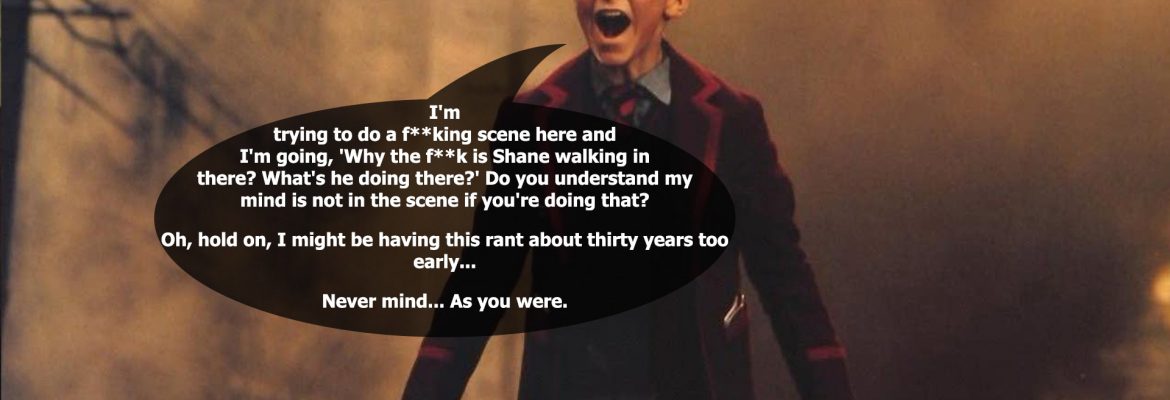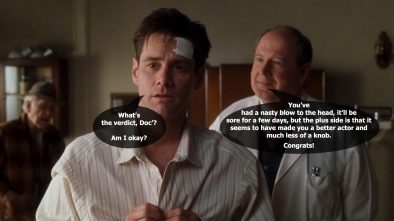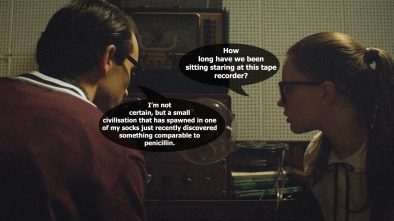It’s Always Sunny Under Japanese Occupation
A look at the film ‘Empire of the Sun’ directed by Steven Spielberg
They say history is written by the victor. Yet, North America have been trying to pass off the Vietnam war as some kind of daring military feat in its films for the last forty-odd years.
While I haven’t seen much in the way of a film industry of any kind from Vietnam, I’m sure there is one and I’d bet a few quid that they don’t waste their time rehashing that hideously unnecessary conflict over and over and over and over again.
That’s a bit of a low-blow, perhaps. I apologise to our American friends for it, but it is fair to say that it wasn’t a success by any stretch of the imagination. In terms of lives lost, money and resources, it was a shambolic and scruffy affair that served very little purpose. So, it’s not against the realms of decency to suggest that history can also be written by sore-losers as well.
History is history. I’ve always felt that history is plain and simple fact without emotional prejudice or the taint of perception. For example, one could say, “Hitler built and acted out plans to eradicate millions of lives whilst seizing land across Europe.”
That is fact. Whether you are for or against the actions, there is no denying those events. However, if you speak to a rational, sane, human being, they might state the same thing thusly; “Hitler was a nutcase. He murdered millions, he was an animal, his army swept through Europe like a plague of vermin.”
Much more evocative, less fact and more metaphor, delivered with the disgust and revulsion worthy of piling onto someone who’d command such actions. And yet, there are those, even today, who still have not learned from the awful lessons from all those years ago and still believe he was on to something.
The Neo-Nazi movement does still exist and there have been a few cases of people making it into the news for committing atrocities and then giving the infamous salute, or their homes are later found to be adorned with swastikas and other Nazi paraphernalia. Such people look back fondly on what Hitler did and their statements would reflect this, echoing pride and sentiment and holding him up as some sort of hero and martyr.
Stories are not history. Stories contain emotional cues to pull us into them and make us interested as well as entertained. History can be interesting but seldom entertaining. I think the overwhelming majority of us find historical stuff more enjoyable when it’s put into context with story-telling elements to help us make that all important connection.
Winston Churchill, though a good speech writer, I feel was a bit muddled when he made his statement about who gets to write history. I suspect he was a bit caught up in the moment. What I do find though, is that countries tend to let their prejudices get in the way a fair bit when they tell their stories.
For a long time, German U-Boat crews were considered cowardly and devious; hiding beneath the surface of the sea and sinking merchant ships without ever showing where they were. It wasn’t until Wolfgang Petersen’s incredible series ‘Das Boot’ was aired at the start of the 80’s that we got to see a depiction of what life was actually like for those crews. The tension, the fear, the arguments, the elation and the not knowing if they’ll be alive the next day.
It was a series that only the Germans could have made. And it’s unsurprising to see that their portrayal of the men that crewed the boats was generally positive and heroic. What sets it apart though and makes it stand out as an exception is that it shows the pain and anguish at having to leave enemy survivors to drown. It shows the crew in a less than heroic state; dirty, dishevelled, unwashed and short tempered. It felt honest and it didn’t try to preach to anyone about who was good or bad, who was right or wrong. It just was, and it let us decide for ourselves.
The same can’t be said for war films from America. Especially anything to do with the Pacific theatre. The Japanese are an ancient and noble race of people. Two things U.S aren’t, which is probably why there was, and often still is a bit of an antagonistic approach to their portrayal of other cultures in popular media.
It seems that whenever we see the Japanese in American-made cinema, they are brutal, vicious, fanatical and barbaric creatures hell-bent on victory or to die trying. Okay, fair-doo’s, that’s probably a fairly factual description of how they were, but my point is that we only ever get that one point of view. We only really get served the face of the enemy that soldiers described coming back from combat.
What we don’t get is the Japanese being shown as a balanced and family-orientated bunch of people who were sometimes forced to do awful things in war to try and serve their country’s needs. But an American war film isn’t going to want you to think of the enemy as people. It would rather be a chest-thumping exercise for people to chant “U-S-A, U-S-A,” while the scrappy American underdogs regain the upper hand and rack up a body count for Uncle Sam.
Perhaps this is why ‘Empire of the Sun’ is such powerful and intriguing viewing. It took a British perspective to say “yes, the Japanese weren’t perfect, but it was war… Nobody was perfect.”
I rewatched this film yesterday as it was a title that had been scratching away at my consciousness for a few weeks. I had been discussing it in the context of someone feeling like they needed to save anyone and anything they came across that needed help. It reminded me of the central character from ‘Empire’ and I finally gave in and unshelved my Blu-ray for another viewing.
‘Empire of the Sun’ is not a war film. But it is a film that could only take place during the war. A bit like ‘Die Hard’ isn’t a Christmas film, but could only have taken place during the Christmas holidays. That’ll get some of you stoked up, I bet.
Anyway, as I was saying, it’s not a war film but it begins in 1941 in British occupied Shanghai where Jamie, played by a very, very young (but brilliant) Christian Bale, lives in a large luxurious house with his rich, middle-class parents. Having never been to England, his life in Shanghai is all he knows and he’s very sheltered and shieled from the world outside. He has spent his life growing up with the Chinese and Japanese as his neighbours and he’s infatuated, as many young boys are, with the aeroplanes he often sees patrolling the skies above. As a result, he’s grown fond of the Japanese and is naïve to their intentions and the danger the pacific war poses to his household.
Once Pearl Harbour is attacked, so the occupying forces advance on Shanghai, and in the chaos and confusion, young Jamie is separated from his parents and lost in a crowd. From there, he must quickly learn to survive in a hostile world where none of the luxuries he once knew exist any more.
‘Empire’ takes us on a journey from naïve and immature child, Jamie, and takes us through three-and-a-half years of living in a prisoner of war camp to when he is a savvy and scheming adventurer who knows the highs of gaining respect from his peers, and the lows of realising who he is, where he is and why he’s there.
It’s a performance that many adult actors would be envious of. But when we factor in that Bale was just thirteen when he landed this role, it makes it all the more impressive. I know he’s had his moments in adulthood where his conduct hasn’t been very good, but there is no denying that this chap can act, and in this instance, he is utterly believable in every scene he is in, whether it’s the cocky and childish early version, or the reflective and grizzled (slightly) older version.
With the focus on Jaimie and his journey, it’s hard for anyone else to get any serious screentime. Though the always enigmatic John Malkovich and his sidekick, Joe Pantoliano, probably are the next most prolific with everyone else propping them up. That’s not to say that the others don’t play a significant role, nor should their limited time in the film be written off as lacklustre, far from it. But with so much going on, much of the film ended up on the cutting room floor in order to keep the pace going.
And as a credit to Spielberg, we get a film that is paced well, carries us nicely from point to point to point, and never gives the impression that we’ve missed out a ton of important stuff that they shaved out for time. It is a complete film, and whether their role ended up being a big one or a cameo, everyone delivers with a gusto and a sense of genuine character depth.
The filming is beautiful, the staging dramatic, and there is a constant feeling of bewildered wonder to highlight that we are seeing this film through a child’s eyes. To help assist with this, we have another splendid soundtrack from ‘the’ one and only John Williams.
Seriously, this guy could write a score for a piece of shit like ‘Swiss Army Man’ and it would suddenly become a totally new film worthy of your time. Williams has that golden, magical touch and a talent for using an orchestra in the most perfect way.
There have been lots of truly great composers over the years. Goldsmith, Horner and Morricone to name but a tiny few. Each has a unique sound, each has signatures that if you listen carefully enough, you can tell it is them. In my opinion, Williams’ signature is that he has no definable signature. The closest I can come is his ability to create deep melodies with whimsical touches; those complicated little flurries that keep woodwind and violins busy while everyone else is madly sawing away at their instruments to keep up with him.
Imagine ‘Star Wars’ without a Williams soundtrack. Or ‘Harry Potter’, or ‘Jurassic Park’… This list is endless. All films that hold up on their own, but are made grander and fizzle and sparkle because of the amazing scores that Williams creates for them. Each so unique, each beautifully creating a sound that fits their respective films perfectly.
Here, we have a bit of a mix. Some cues work nicely as separate pieces of music, some feel a bit odd and uncomfortable on the soundtrack album, but within the context of the film, all are perfect for creating atmosphere, building a sense of tension or euphoria. Mourning an event or celebrating. Most of all, just the sense of innocence and wonder that is conveyed through the music alone is breath-taking. When merged into a well-acted scene that is tightly shot and masterfully edited, we’re left spellbound by the combination.
Great examples of the this that really stand out for me include the American fighter-bomber attack on the airfield, and the scene were the Hiroshima bomb goes off in the distance. You’d have to have a pretty cold soul to not feel some emotions during those bits.
Mistakes were made, and thanks to the clarity and excellent picture quality afforded by Blu-ray technology and super-sized 4k televisions, it’s easier to spot them. 80’s style double decker buses and Range Rovers, either being driven or parked prominently in full-view during scenes in 1945 Shanghai are a tad problematic as is a few geographical inaccuracies like having such a detailed view of an atomic explosion in Japan from the Chinese mainland.
But then J.G Ballard’s original novel, on which this film is based, was a bit rambling and incoherent mess and though it was meant to be semi-autobiographical, I imagine was tainted heavily by the fog of memory, childish imagination and trying to dress things up a bit to be slightly more entertaining.
Where the book failed, the film succeeds. A rare feat when one considers the history of films made from original novels.
But more importantly, there is not an overwhelming sense of stiff-upper-lip-and-carry-on from the British characters. There is no senseless stereotyping of the American characters, and the Japanese are portrayed as duty-bound and stern, but not as savages. I applaud Spielberg for making ‘Empire’ in the same way that Petersen made ‘Das Boot’ and simply giving us a balanced view of everyone’s good and bad bits and letting us have our own opinion. What more would you expect from a director who would tell the story of sympathetic Nazi, Oskar Schindler, just five years later?
I’ll never forget one of Alan Rickman’s lines in Kevin Smith’s ‘Dogma’; “If there isn’t a film about it, it isn’t worth knowing, is it?” A great little nod by Smith at the dumbing down of modern culture where facts are boring but films are fun. Hence why there was an entire generation of people stunned to find out that the late 90’s romantic-disaster, ‘Titanic’, was inspired by a real ship by the same name that actually sank in the 1920’s. Shock-horror… Who knew?
But as a result of this dumbing down, history isn’t being written by the victors, nor the losers… It’s simply being written by whoever can get a script green-lit with a studio. And when that story continually portrays cultural stereotypes with no proper balance, we’re going to give the “Titanic was real?” generations some horribly maligned opinions about who we share our planet with.
We need more Petersen’s, we need more Spielberg’s. We need more people brave enough to make war films that can blur the lines between good and bad, and allow the audience to be clever enough to work it out for themselves.
If we need to make history fun and entertaining in order to push it out to the masses, let’s try to make it as fair as possible. In the meantime, for those of you who love a great character arc, supreme acting and films made with love and passion and sugar and spice, give ‘Empire of the Sun’ a chance. I’m confident in my ruling you’ll find it heart-breaking and heart-warming all at the same time.
A reason why you should watch it: It’s a cinematic experience of a very high calibre.
A reason why you shouldn’t watch it: Your prejudice about what constitutes a ‘war film’ isn’t calibrated properly.



